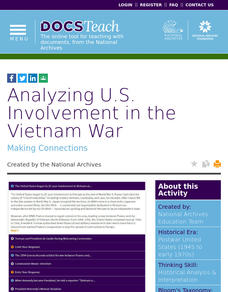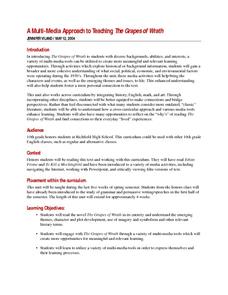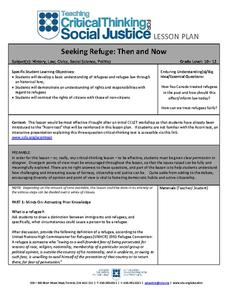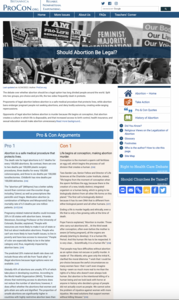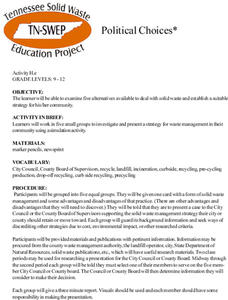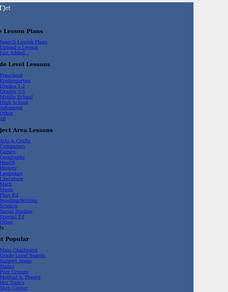DocsTeach
Analyzing US Involvement in the Vietnam War
War: unavoidable or a necessary evil? A thought-provoking activity explores the United States' long involvement in the Vietnam War as well as the aftermath. Scholars research and summarize primary documents and complete online worksheets...
DocsTeach
Introduction to the Domino Theory and Containment Policy in Vietnam
Scholars analyze a propaganda poster against communism. The resource uses the poster to examine the domino theory and containment policies used by the United States to stop the spread of communism in Vietnam. Scholars work in pairs or...
Center for History Education
Confronting Third World Nationalism: The United States and the Overthrow of Prime Minister Mossadegh
Not all rebellions are led by the people. An intriguing activity explores the overthrowing of Iranian Prime Minister Mossadegh by the CIA. Scholars view a series of images and read background information to understand the circumstances...
Center for History Education
A Presidential Decision - The Bay of Pigs
The lesson examines President Kennedy's response to the Bay of Pigs Crisis and Cold War tensions. Academics learn how the information President Kennedy had affected his response to the question of whether to invade Cuba. Scholars...
Curated OER
A Multi-Media Approach to Teaching The Grapes of Wrath
Integrate history, math, and art into a study of The Grapes of Wrath with a series of activities that ask learners to investigate the social, political, economic, and environmental factors at play during the 1930s. Designed to be used...
Canadian Civil Liberties Education Trust
Seeking Refuge: Then and Now
Participants examine refugee law and policies and read several case studies to prepare for a discussion of this hot-button issue. The packet includes a wide range of materials representing a variety perspectives.
Curated OER
Abortion
Abortion has remained a highly controversial issue ever since the landmark 1973 Roe v. Wade decision. Using the website, learners sift through all the information they need to participate in a debate about the topic. They learn about the...
Franklin D. Roosevelt Presidential Library & Museum
Developing Your Voice and Your Right to Free Speech
Three activities focus on the First Amendment, especially the freedom of speech. Scholars craft a letter to the President of the United States and express their views about a topic important to them. Another activity has participants...
Smithsonian Institution
The American Presidency: Grades 4-6
An interesting unit explains the American presidency from the campaign trail all the way to the role of the president. Historians participate in discussions, create posters, conduct Internet research, and more to gain an understanding of...
iCivics
Governing Communities
The government at the local level acts as perhaps one of the most relevant government systems to many in their communities. Learners discover how the local government shapes their lives and the similarities and differences between the...
Museum of the American Revolution
George vs. George
It's George versus George in the battle for the American colonies. An interesting activity compares the leadership of George Washington and King George III during the American Revolution. Scholars read text, compare portraits, and...
Smithsonian Institution
Borders with the World: Mexican-American War and U.S. Southern Borderlands
The Mexican-American War created social borders—not just physical ones. Scholars learn about the effects of the Mexican-American War on the people living in the borderlands using text excerpts, maps, and partnered activities. Academics...
DocsTeach
Red Record of Lynching Map Analysis
Long before the civil rights movement, leaders were working to secure equal rights. An informative activity explains the 1922 anti-lynching campaign with a map. Scholars analyze the map, complete a worksheet, and participate in group...
Curated OER
ONE VOTE
In order to understand the political process and the importance of voting, pupils will construct a class time line. They will group up and research a specific era, creating a time line of political events where one vote made a...
Curated OER
Race, Education, and Income: Comparing Carter & Reagan
High school learners compare economic outcomes for 3 racial groups under the presidencies of Jimmy Carter and Ronald Reagan by analyzing a series of graphs, answering questions from a worksheet, and participating in a discussion.
Annenberg Foundation
Teaching Geography: Workshop 4—North Africa/Southwest Asia
Can Jerusalem be equitably organized? Can Israel and Palestine be successfully partitioned? Part one of a two-part workshop looks at the geo-political history of Jerusalem while Part two investigates Egypt's dependence of the Nile River...
Curated OER
Political Choices
Students, in small groups, investigate and present a strategy for waste management in their community using a simulation activity in which each group represents a sector of their community.
Roy Rosenzweig Center for History and New Media
Reconstruction
When slavery ended, what did the government do to help African American during Reconstruction? An interesting instructional activity uses primary sources such as newspaper articles to help scholars analyze Reconstruction policies and how...
Carolina K-12
The Twenty-Sixth Amendment and the Power of Youth
Empower teenagers to take political matters into their own hands! After completing an engaging warm-up activity, class members discuss both sides of the youth voting issue, learn about the connection between military history and the...
Center for History Education
The Cuban Missile Crisis
Cold War tensions led to hostile actions. Scholars use primary sources to understand the Bay of Pigs and the Cuban Missile Crisis during President Kennedy's administration. The lesson provides primary sources and a graphic organizer to...
Curated OER
The Sands of Arabia
Sixth graders apply geographic information to the study of World History. In this Geography lesson, 6th graders create a political/physical map of the Middle East, develop questions and answers about the culture of the Middle East,...
Curated OER
No Joke - My Voice Counts!
Students respond to cartoons. In this social and cultural issues lesson, students examine how cartoons can be used to get a message across to the reader. After examining numerous cartoons, students create their own cartoon with a social...
Curated OER
The Way Editorial Cartoons Work
Twelfth graders interpret visual language found in political cartoons.
Curated OER
Election 2005: Campaign Issues
Students take a closer look at the election of 2005. In this British politics lesson, students listen to a lecture about the 2005 campaign and active citizenship. Students then create collages and news boards about the...
